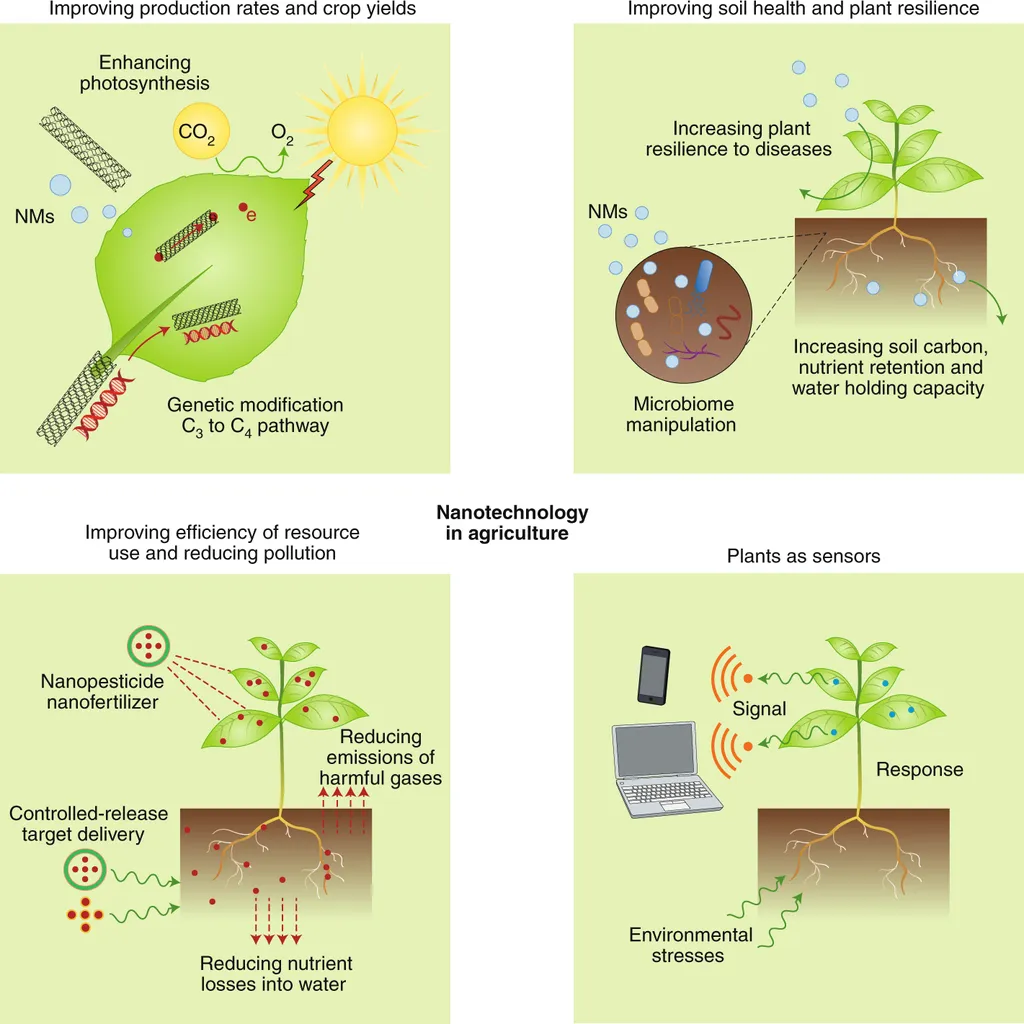In the heart of Nepal, at Gokuleshwor Agriculture and Animal Science College, a quiet revolution is taking root. Dipak Raj Bist, a dedicated researcher, is spearheading a movement that could redefine the future of agriculture. His work, recently published in the journal *Advances in Agriculture* (translated as *Progress in Agriculture*), is unlocking the potential of nanotechnology to transform crop protection and food security.
Imagine a world where pesticides are so precise that they target only the pests, leaving the environment untouched. Where sensors in the soil can alert farmers to potential threats before they become disasters. Where crops are not just resilient but thriving, even in the face of climate change. This is not a distant dream but a reality that Bist and his colleagues are bringing to life.
Nanotechnology, the science of manipulating matter at the atomic and molecular scale, is proving to be a game-changer in agriculture. “Nanotechnology offers innovative solutions to crop production, food security, and sustainability,” Bist explains. “It’s not just about improving yields; it’s about doing so in a way that’s sustainable and environmentally friendly.”
One of the most promising advancements is the use of nanosensors. These tiny devices can monitor soil and plant conditions in real time, providing farmers with data that was previously unavailable. “Timely identification of threats and efficient management of resources are crucial for sustainable farming,” Bist notes. This technology is particularly impactful in developing nations, where food security is a pressing issue.
The numbers speak for themselves. Recent studies have shown that nanofertilizers can increase crop yields by up to 30%, while nanopesticides reduce chemical usage by 40%, minimizing environmental impact. These innovations are not just theoretical; they are being tested and implemented in real-world scenarios, with impressive results.
The commercial implications for the energy sector are also significant. As the world grapples with the challenges of climate change and food security, nanotechnology offers a path forward that is both sustainable and efficient. “Multidisciplinary research and collaboration are key to making nanotechnology a vital tool in agriculture,” Bist emphasizes. This collaborative approach is essential for addressing the complex challenges facing the agricultural industry today.
The future of agriculture is being shaped by these tiny but mighty technologies. As Bist’s research continues to gain traction, it is clear that nanotechnology will play a pivotal role in feeding the world’s growing population while minimizing environmental impact. The journey has just begun, but the potential is immense.

